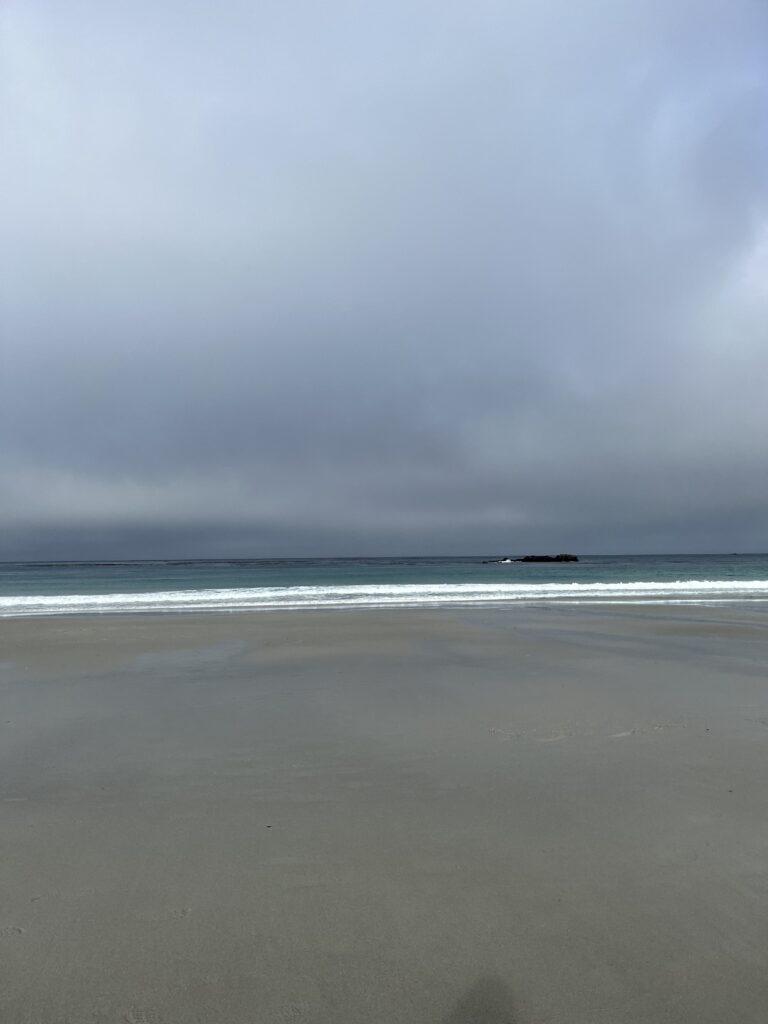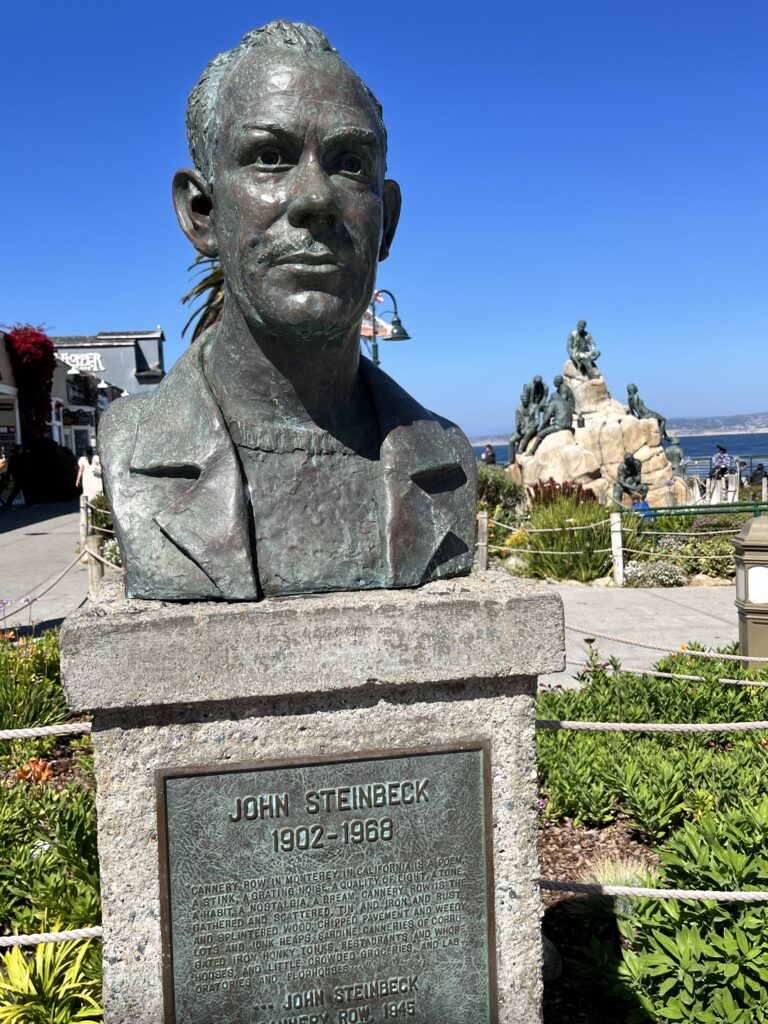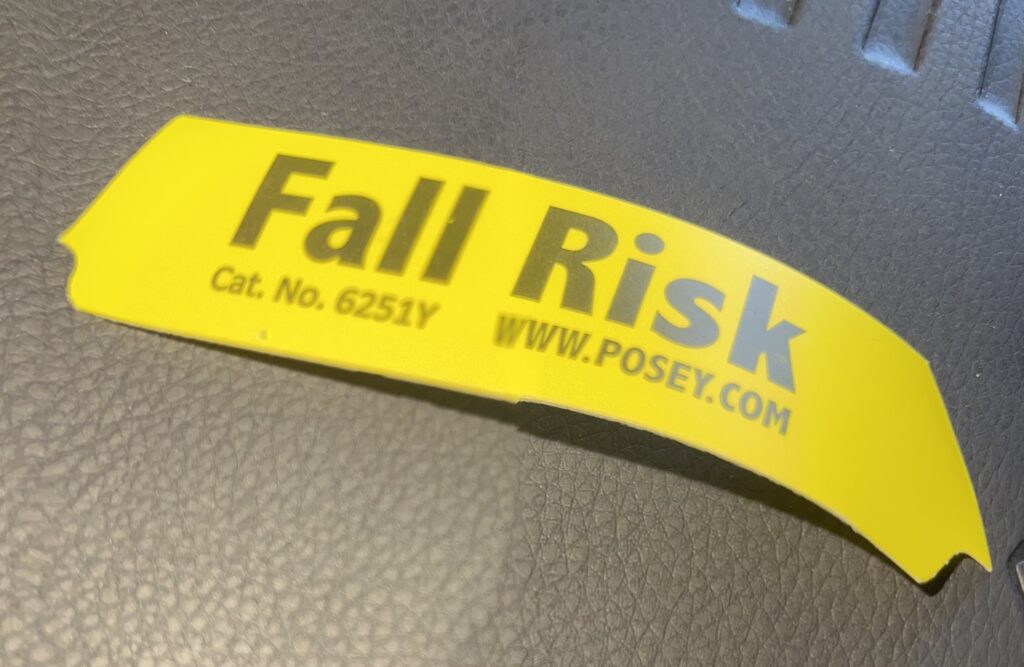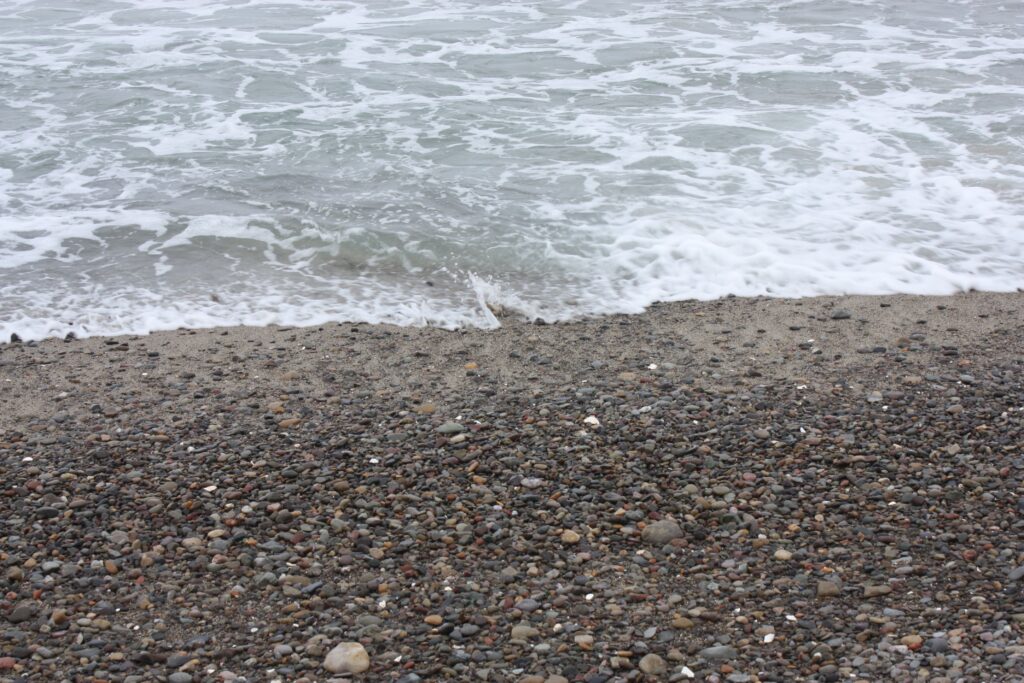Nick’s story with Charlie Watts first ran here on the blog at the end of October. In a serendipitous moment, I found another spirit to join the story. While I was shopping at my local Trader Joe’s I chatted with Carla, the checker. She asked what I planned to do with the rest of my afternoon. I told her I would do some writing. She asked what kind of writing I did. I told her of my blog and the short stories. She asked, what’s the current story you’re working on? I gave her a brief summary of this story. After a pause, she lit up and said, You can have the two pick up a hitchhiker. Another musician. They can compare notes on their favorite performances. I was stunned! I came straight home, put away the groceries, and started outlining a revision to the story. Freddie Mercury became the hitchhiker.
Here’s the revised version. Thanks to Carla. I hope you enjoy the story.
Cruising Route 66 with Charlie Watts
Nick padded into the room and dropped into his worn leather chair, eyes set on the trees out beyond his patio sliders. A mild breeze stirred the few golden leaves still clinging to the tree tops.
It had been a hard day. A hard week. Shit, a hard couple of months. He rubbed the skin around his eyes with the heels of his hands. So tired. Fatigue from his meds. Fatigue that drained him of all energy. Even brushing his teeth every morning was a forced effort.
His oncologist had put him on an increasingly aggressive round of treatments. Something about the numbers in his blood work being skewed. Damn, his whole life felt skewed.
Nick reached for his iPad, opened Spotify and scanned through his library of saved music. One album caught his eye. The A,B,C and D of Boogie Woogie. One of Nick’s go-to albums. Recorded live at a tiny jazz club in Paris in 2010. Axel Zwingenberger and Ben Waters on pianos, Charlie Watts on drums, Dave Green on bass. Charlie Watts, also the drummer for The Rolling Stones. Charlie, gone now, four years ago. Nick connected to his soundbar, hit Play and poured himself two fingers of Jack Daniels, neat. Not a good idea considering all the meds in his system, but today he didn’t give a shit.
Nick closed his eyes as he sipped the drink, his hands cupped around the glass. The road trip song came up. “Route 66.” Pianos building through a modest intro to a rollicking melody as the drums and bass rumbled in. Vocals strung out on top.
Two thousand miles, Chicago to LA. Passing through St. Louie, Oklahoma City, Amarillo, Flagstaff. Nick recalled making part of that drive several times himself. In healthier times. LA to Albuquerque. His kind of driving. A ribbon of interstate spooling out across the open desert. Usually only modest traffic. Cars, big rigs, all on the route with a purpose.
Nick’s mind drifted, wishing he had been in the Paris café when this album was recorded live. A tiny venue, audience only feet from the stage. I wish I could play the piano, he muttered to himself. His mind ran back to the fifth grade, when he had taken piano lessons for a year. He hated it. Never felt the music. Never got past the rote practices. Now, a lifetime later, he rued not learning to play. Ironic, because at family gatherings he had loved when his mom played the piano and everyone gathered around to sing.
As he sipped his drink, all he could feel was, shit, why am I so beat down?
The album music played on. What he heard was fun. Joy. Four men making music. Pianos swinging, bass and drums providing a bottom.
He squeezed his eyes tight as the recording played on.
A breeze rustled his hair. A shudder ran up his spine. What the hell? He opened his eyes.
Nick found himself sitting in the driver’s seat of a classic luxury Duesenberg. Deep green leather seats. Convertible top closed, the windows open to night desert air. He shook his head.
This is not real.
He tapped the gas pedal and felt the large engine surge. He glanced to his right. In the passenger seat sat Charlie Watts, drummer on the album, more famously, drummer for the Stones. Nick shook his head in disbelief. Charlie’s spirit?
Charlie turned towards Nick, smiled. Nick’s voice squeaked, “What’s going on?”
Charlie nodded as Nick kept his eye on the road. Well after midnight, Nick guessed. He peered out the window to see a black sky studded with countless stars. Inside, the dim lights of the dash lit his knees. A road sign told him he was rolling on Route 66.
Charlie wore a dark green suit that matched the car’s upholstery. White shirt and green paisley tie. His outfit wrinkle-free.
The two drove on. Passed several Swift big rigs making their night runs from their Arizona hub. The Route 66 music from the album came through the car’s sound system. “This is a beautiful car,” Nick said. “A model J, if I’m not mistaken.” He ran his hands over the wheel. “I read somewhere that you collected classic cars.”
Charlie nodded without turning. “Only European makes. This one was an exception.”
Nick felt himself relaxing, easing back in his seat. He breathed in deeply, the smell of desert sage strong on the breeze. The music from the album continued to play. He watched Charlie drum lightly on his knees with a pair of drumsticks as they drove on.
“Can I call you Charlie?” Nick asked.
Charlie nodded once.
“How did I get here? Am I losing my mind?”
“I have only a few words, Nicholas,” Charlie said, almost in a whisper. “I am here for a brief time.”
Nick scrunched his lips. “Okay, so what do I do? Just sit back and enjoy the ride?”
Charlie shook his head.
Nick looked hard at Charlie. “So I’m supposed to do something? Or say something?”
Charlie, “Perhaps.”
“I read about you,” Nick said. “You collected vintage cars. But you didn’t drive. Didn’t have a license.”
Charlie shrugged.
“So you, like, collected toys and kept them in a garage. Only to look at them. That must have killed you…not being able to drive a beauty like this.”
Charlie lifted both hands in surrender. “I took pleasure in sitting in them with the engine running. Listening to the music of the machine.”
“Without moving?”
“Each car had a different sound, a unique vibration. It’s all in the listening.”
“But sitting in Park? No movement?”
“I spent almost sixty years drumming behind a front man. Always in the background. It’s who I am.”
“Your music…You were in the driver’s seat. The backbone of every song.”
Charlie grinned, nodded.
“It must have given you so much joy to play in that Paris café. The album is fantastic. I feel so much joy, such energy, when I listen to it.”
Charlie offered a wide smile.
Nick drove on. He passed a slow-moving VW micro bus, the driver waving and giving a thumbs up.
Charlie began tapping out his part of the song that played on the album.
“If I had my life to live over,” Nick said, “I’d be a musician. A piano player. Play in small groups. Keyboard, bass, drums…maybe a tenor sax.”
Charlie sat motionless. “But you can’t do it over. Your life is what it is.”
“What about you? Fifty-eight years as the drummer for the Stones, right? Would you have done any of it over?”
Charlie closed his eyes for a moment. “If I could…only the drinking…the drugs. I regret that. It almost destroyed me.”
“So…what? I’m here in some kind of dream, driving with the spirit of Charlie Watts, talking about doing my life over?”
“I told you…you can’t live it over.”
Nick shook his head trying to clear this illusion, asked, “Do you wish you were still alive? Still drumming with the Stones?”
Charlie said, “It is what it is.”
“That’s it? No regrets? No wanting to go back?”
“Nothing to go back to. I was finished. Time to move on.”
An Arizona State highway patrol car passed the Duesenberg, slowed for a moment, then moved ahead.
“And where are you, exactly, Charlie?”
Charlie did a mini drumroll on his knee. “I now drum with Gene Krupa. Play with Oscar Peterson and Art Tatum. Duke Ellington. All the greats. Pure joy. Boundless opportunities.”
“Musicians on the other side.”
Charlie nodded.
“I may be joining you soon. My cancer is relapsing.”
“I am aware of that. Make the most of your time,” Charlie said.
“Easy for you to say. Most days I’m too exhausted to do anything.”
Charlie shrugged. “I think of Churchill. In the middle of World War II, he famously said, ’Never give up.’”
Nick spied a shooting star light up the sky ahead. He nodded towards the windshield, “Our lives are like that shooting star. A flash and then gone.”
“I disagree,” Charlie said. “I was with the Stones for fifty-eight years. I played jazz whenever I could. I collected cars for fun…And I brought joy to many people. I don’t consider that a flash and a flameout.”
“Yeah, but I have no hope of living like that.”
“You seem to have regrets, dear friend. Yes, you struggle with ill health. Is there no hope in your life?”
Nick laughed. “Hope? I see only a slide towards the end of life. Act three, scene three. There’s a guy waiting in the wings, his hands on the curtain ropes.”
“That is most unfortunate…most unfortunate that is all you see.”
“I’m not as lucky as you were.”
“Lucky? No, my friend. Persistent. Showing up every day. Sober, high on alcohol and drugs, sober again. Fifty-eight years behind the front man. Giving the others a foundation, always from the back.”
“Okay, I’ll give you that. But you got paid well. You had incentive.”
“No, I had joy. I had a lifetime of making music, creating harmony. Listening to my band mates. Making music together.”
Nick drove on in silence.
“You remind me of Ray Charles,” Charlie said.
“Huh?”
“I played with him once. We were doing ‘Georgia on My Mind.’ He was playing so slowly I could not drum.”
“I don’t get it.”
“That’s my point. You are so slow I can’t communicate with you.”
On the shoulder of the highway Nick spied a man hitchhiking, thumb out waving vigorously. Nick said to Charlie “He looks familiar. Should I stop?”
“No need.” He pointed a drumstick towards the rear seat. A man sat there. White sleeveless undershirt. Huge smile.
Wait, how did that happen? Nick gazed into the rear view mirror.. “That’s…you’re… Freddie Mercury. What the hell?”
“Evening, pal. Thanks for the ride.”
Charlie smiled. “Been a while. How are you, friend?”
“Brilliant. Started a new band.”
“Any good?”
“Getting there. Looking for a sax player.”
“They don’t die as often as we do,” Charlie said. “Have you tried Clarence Clemmons?”
“Already got a string of gigs lined up. Can’t get to him.”
“This is unreal,” Nick said. “How is this possible?”
“You were feeling beat down. Am I correct?” Freddie said.
Nick nodded.
“Yet you look to music to get you through the bad times. I see you play Charlie’s album every time you’re down. Like now.”
Nick had no words.
Freddie turned to Charlie. “You loved doing that recording, didn’t you? So different from what you’re known for.”
“So different from your own performances, Freddie. That Live Aid show at Wembley. Thousands in the audience, singing with you. Broadcast everywhere. It rocked my soul.”
“And you,” Freddie said. “A quiet performance in a tiny venue. Recording audio only.”
“Right. I spent 58 years in arenas in front of thousands. That performance was my favorite. Quiet. Yet raucous. The rolling thunder of boogie woogie pianos. The high and low notes. Me behind them providing a bottom. I loved getting away from the Stones and doing the jazz clubs.”
Nick drove on. Charlie Watts and Freddie Mercury in the car with him. Why?
“I see you are perplexed, Nick. Relax. We’re here on a break, taking a bit of the spirit world to the physical realm. To you in particular.”
“Why?”
“Binging you a bit of peace, we hope. Letting you know you can get through this. And when you’re finished, there’s an infinite amount of music to enjoy.”
A kind of shiver seemed to pass over Charlie. “I will be leaving you shortly.”
Nick looked in the rear view. Freddie dissolved into nothing.
“Wait, I still don’t get it. Why is this happening?”
“You are right. You don’t get it, Charlie said. “I am telling you, my life was all about listening. But you are not hearing me.”
Nick shook his head. The car’s wheel seemed to shimmy a bit.
“What’s happening?”
“Do you want to make music with your life? Listen to your heart, my friend. Listen to your own soul. Find the joy. In every moment.”
A dark cloud enveloped the two men.
As the darkness eased, Nick’s vision cleared.
Once again at home, his hands still clutching the glass of Jack Daniels.
No Charlie Watts, no Freddie Mercury,. No Duesenberg, no Route 66.
Only silence.
A night sky beyond the patio.
The album had played out on Spotify. Nick shook his head hard, shaking off visions beyond his seeing.
What the hell is wrong with me? The damn meds are making me hallucinate.
He still felt the fatigue that sapped his energy. Still felt beat down. But a whisper, maybe a hint of endurance, niggled at his brain. Running through his mind was the phrase, It is what it is.
Nick reached to set the glass on the table next to his chair. His hand knocked something to the floor with a clatter. He looked down.
On the floor… a pair of drumsticks.
***




Recent Comments